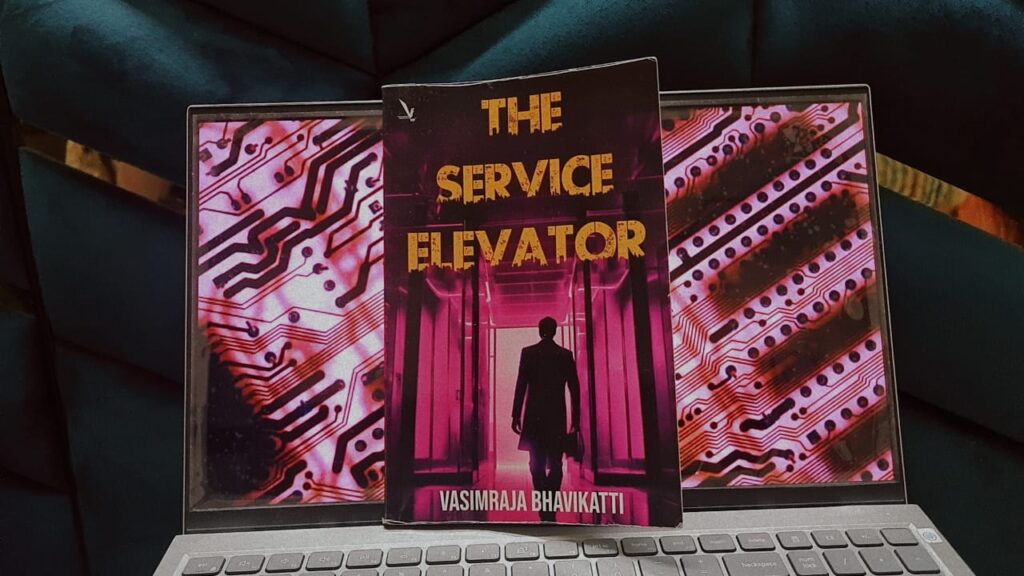Milind Kabra, a thriving management executive and a prominent figure in India’s IT industry, unexpectedly finds himself alone in an elevator one day. However, his situation takes a perplexing turn when an unfamiliar and enigmatic man engages him in conversation, promptly assuming control of the elevator. This unsettling encounter shatters Milind’s belief that he’s merely trapped due to a malfunction; instead, he comes to the stark realization that he’s being held hostage by this mysterious individual.
In the confined space of the elevator, Milind is compelled to confront his past actions and choices, leading to the revelation of concealed facets of his life. Moreover, this tense situation compels him to expose disconcerting truths about the darker underbelly of the IT industry.

“The Service Elevator” by Vasimraja Bhavikatti had both good and bad sides to it. It was something that I had never read before. Rather than being a thriller, I believe that the book had an element of mystery to it that made the story gripping.
The Service Elevator offers a unique look into the world of the IT industry through an intriguing fictional tale. While the book effectively tackles important industry issues, it also has some moments that may be unbelievable for those who are not familiar with the industry. Also, the book could have been a lot better with a round of thorough editing.
The idea of the story suited the author perfectly. Bhavikatti’s background in IT shines through, adding authenticity to the story and making it a compelling read for those interested in the IT world. The characters’ discussions and debates provide valuable insights, challenging readers’ perspectives in a thought-provoking way. Even when he is arguing against something that we consider to be the norm, Bhavikatti is able to easily sway our ideas with the help of well-thought-out and factual arguments.
However, the book’s repetitive question-answer format may become tiresome for some readers, and there are instances where the technical details may be overwhelming. Occasionally, certain passages suffer from repetition and implausibility. Despite all this, the ideas presented in the book and the scandalous realities of the industry kept me hooked till the end.
Despite these drawbacks, “The Service Elevator” is worth considering, especially for those curious about the IT field (and those who, unlike me, are not put off by grammatical errors)
I was given a review copy of the book in exchange for an honest review.
